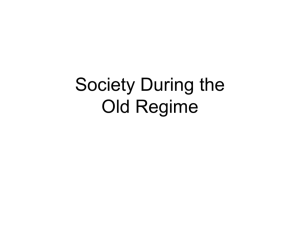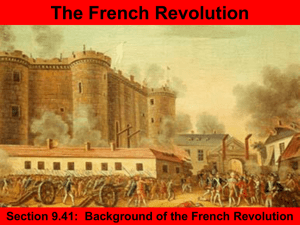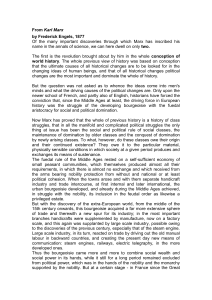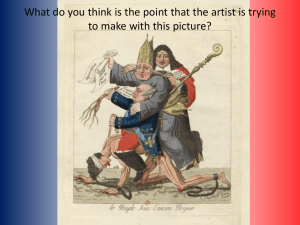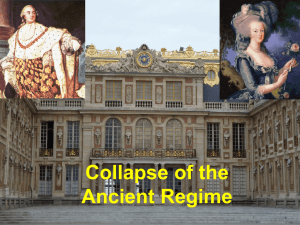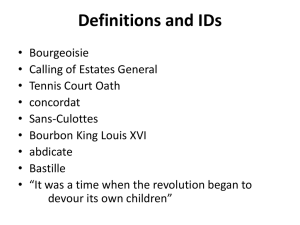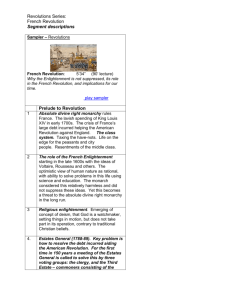Causes of the French Revolution
advertisement
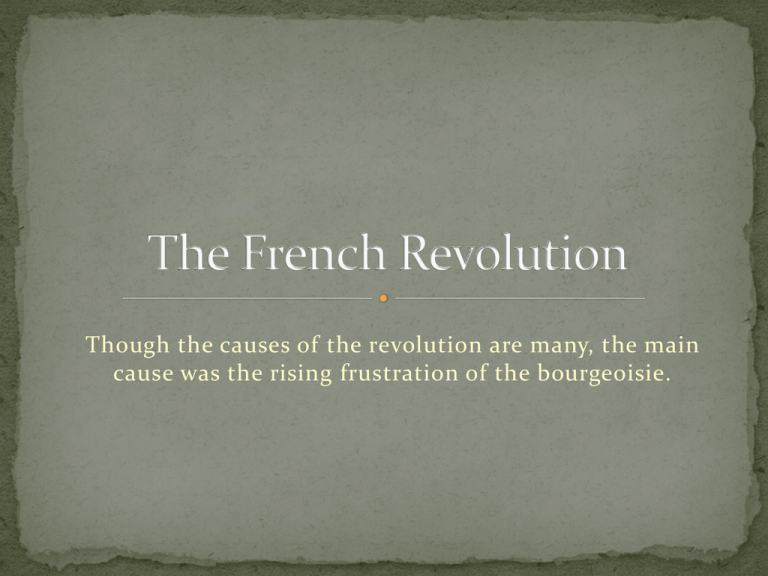
Though the causes of the revolution are many, the main cause was the rising frustration of the bourgeoisie. Louis XVI Girondists (Jacobins) Marie Antoinette Mountain (Jacobins) Parlement of Paris Paris Commune Estates General The September Massacres First, Second, & Third Estates The Convention Abbe Sieyes sans-culottes Cahiers de Doleances Reign of Terror National Assembly Committee of Public Safety Tennis Court Oath Lazare Carnot National Constituent Assembly levee en masse Fall of Bastille Society of Revolutionary Republican Women The Great Fear Jacques Danton Declaration of the Rights of Man Maximilien Robespierre Civil Constitution of the Clergy “Republic of Virtue” emigrés Law of 22 Prairial Edmund Burke Cult of the Supreme Being Declaration of Pillnitz Thermidorian Reaction Legislative Assembly the “white terror” Jacobin Club Directory Noble Tax Privilege By refusing to allow reform of the taxation system, the nobles set in motion the events that led to their loss of privilege. Diversity in the nobility made it difficult for the nobility to put up a united front. Old nobility vs. nobility of the robe Some nobles had more liberal economic views Lack of Royal Leadership Louis XVI gave in to pressure from the nobles to restore noble power. He gave the Third Estate double the number of representatives but did not change the system of voting in the Estates General. He wavered back and forth between compromise and intransigence, right up to his attempted flight. He was indecisive and incompetent, and some believed his wife was decadent, which alienated many from the regime. American Revolution The revolution in America hugely increased the financial difficulties of the king. Many soldiers who had fought for American independence returned home imbued with new ideas about popular sovereignty. Immediate Economic Crisis & Bad Harvest The economic problems made the lives of the peasants and urban poor more insecure, which meant they were easily called to action and mob violence Ideas of the Enlightenment Particularly the ideas of John Locke and Rousseau, which were popularized by cheap, publications, created a demand fro responsive and reasonable government. The bourgeoisie were now wealthy but still excluded from political power except in individual roles. They were also angry at the nobles because of their privileges, social pretensions, and disdain for the middle classes. The bourgeoisie created wealth for France, and they demanded a constitutional government in which individual liberties and legal equality would be guaranteed and in which they could wield significant power. The bourgeoisie had moved closer to the nobility in terms of values: both valued land ownership and the life of a gentlemen. The bourgeoisie was not monolithic some wealthy merchants and government officials were quite conservative while others, particularly some lawyers, were liberal or even leaning toward radicalism.
